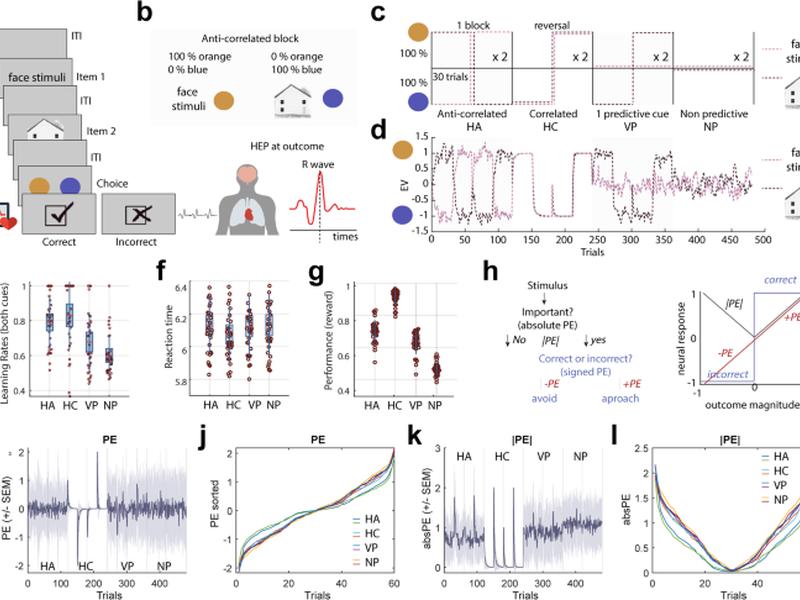This article discusses the relationship between the absolute prediction error dimension of decision outcomes and the heart-evoked potential, and how the timing of a reward-related outcome affects this relationship. The study found that the timing of the outcome, with respect to the cardiac cycle, can impact learning and overall performance in a reward-guided decision task. The results suggest that the heart-evoked potential may play a role in learning and decision-making processes.

